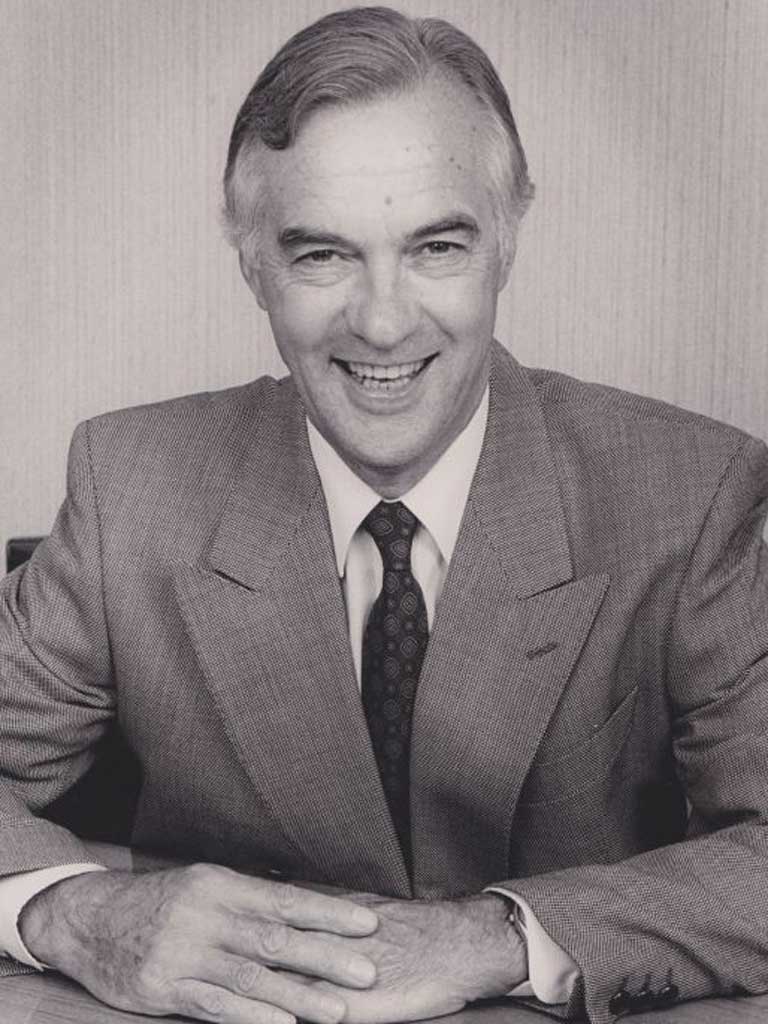Danny Sergeant: Last president of the SOGAT print union

Danny Sergeant, a softly spoken man with strong views, was the last President of the printers' union the Society of Graphical and Allied Trades. A Scot who left school at 14 to become a breadwinner for his family, he rose to become one of the central figures in the print world as it faced and fought the advent of how new technology was introduced and changes made to existing working practices – a battle that was largely lost at Wapping.
Sergeant was elected to succeed Brenda Dean as General President in 1985, when she was elected to take over from the former General Secretary Bill Keys. They were the first two officials to have been elected to national positions not to have come from the powerful London branch, and they took up their new posts as the union found itself being challenged on several fronts by new trade union laws and changes in existing printing practices. Wapping loomed, and with it threats of sequestration, mass redundancies and a year-long bitter dispute.
SOGAT, the biggest union in print representing both craft and non-craft workers in all areas of publishing, had evolved following a series of amalgamations to become one of the most powerful unions in the country. The latest merger had been in 1982, when after a series of long-running inter-union disputes SOGAT and the National Association of Operative Printers, Graphical and Media Personnel united, a move backed by Sergeant, who worked hard to bring the two together.
Although not from the national newspaper side of printing, Sergeant had the ability to tap in to what the ordinary members throughout the media thought and if necessary to take them on to convince them to take another approach. He established a reputation of integrity.
This was particularly evident in 1986, when Dean, and Sergeant – in his position as president chairing the union's biennial conference – faced the bitterness of members over the handling of the News International dispute, and the decision of the union to lift secondary picketing after it had faced sequestration.
Brenda Dean, now Baroness Dean of Thornton-le-Fylde, remembered how careful he was to reflect the wishes of his members: "He was caring and respectful of members. A cautious man who felt responsible for what he did, he was an honest straight man, always supportive, particularly of women. He would never break his word, and employers knew that. He was always pro-unity. He was a Scot, very conscious of that, and never lost that or his friendships from there."
His reputation as a straight, forthright man was earned from an early age when at the age of 14 he left school following his father's death to become chief breadwinner for his family. His first job was in the Clyde paper mill at Rutherglen, where he joined the National Union of Printers, Bookbinders and Paperworkers. Early experiences, including the closure of the mill and his move to the Radio Times, where he became a Father of Chapel, ensured that he would never forget his roots.
Scottish trade unionism at that time was strong and vibrant force; conditions negotiated north of the border were, in some cases, better than those in England, and ensured that the union took an early interest in Sergeant, whose name had become synonymous with a disciplined approach. He was appointed as organiser for the East Anglia area, and later as a Divisional Officer.
He was one of the first union leaders to make approaches to other unions such as the National Graphical Association, with which his own had had a difficult relationship as they came to terms with the changes to working practices and fought job cuts. Manchester was being side-tracked as a major print centre, and Glasgow was coming under pressure; Sergeant used the 1986 Biennial Conference and the joint action the unions were conducting at Wapping, to call for the NGA and his own union to work together; they amalgamated in 1991.
Surprisingly it was the merger of the two unions, something he'd fought so hard for, which saw Sergeant leave his position with the new union. He was acting Vice-President during the interim period while rule books and practices were brought together, but failed to be elected General President of the newly constituted Graphical, Paper and Media Union (now part of Unite). Brenda Dean also lost out as General Secretary. To the dismay of members, he retired rather than take up the post of Vice President.
Apart from his battles to unite the unions he was also a champion of womens' rights and a harsh critic of racism, in particular of apartheid; they were issues he continued to fight for in retirement.
Daniel Sergeant, print worker and trade union leader: born Rutherglen 18 January 1931; married 1955 Catherine Stark (three daughters, one son); died Southend-on-Sea 25 June 2012.
Subscribe to Independent Premium to bookmark this article
Want to bookmark your favourite articles and stories to read or reference later? Start your Independent Premium subscription today.

Join our commenting forum
Join thought-provoking conversations, follow other Independent readers and see their replies